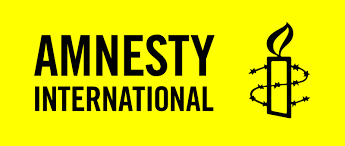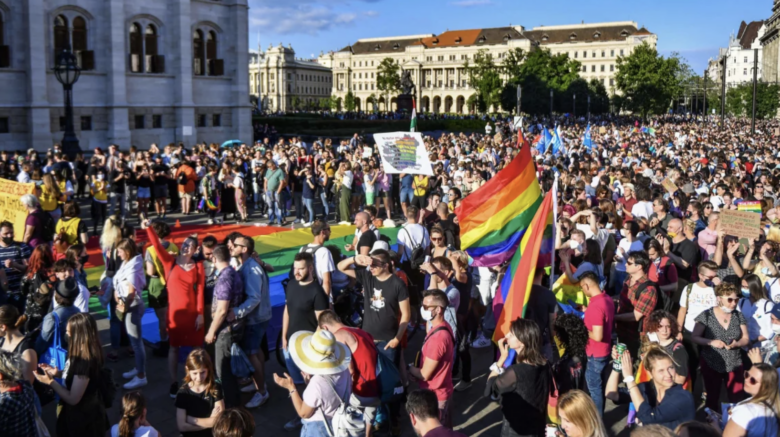AUTHOR: Antía Kornführer Romay
Three years ago, on the 15th of June 2021, the widely domestically and internationally criticised Propaganda Law was passed in Hungary.
Three years of human rights violations.
Background
Since 2010, there has been a noticeable rise in the prevalence of discrimination against LGBTQIA+ individuals in Hungary, evident in both the rhetoric and laws endorsed by the governing party. This trend culminated in the passing of the Propaganda Law on 15 June 2021.
The legislation known as the Propaganda Law includes Act LXXIX of 2021 and the Government Decree 473/2021 (VIII. 6.). Act LXXIX of 2021 was introduced to fulfil Hungary’s constitutional obligation to enhance measures against paedophile offenders and amend laws for child protection. Government Decree 473/2021 (VIII.6.) sets strict conditions for commercial activities that aim to promote, present, or discuss issues concerning the “Divergence from self-identity corresponding to sex at birth, sex change or homosexuality” to individuals under 18 years old.
The Propaganda Law: Act LXXIX of 2021 and Government Decree 473/2021 (VIII.6.)
Initially, enforcement of the Propaganda Law regarding media, advertising and commercial activities was minimal. However, as of early 2023, authorities have begun to apply the law more extensively.
Under the provisions of the Advertisement Act and Media Act, Government Decree 473/2021. (VIII. 6.) mandates retailers to restrict the display and sale of “Products targeting children depicting or propagating divergence from self-identity corresponding to sex at birth, sex change, and homosexuality”. Products of this nature must be kept separate, packed distinctively, and are prohibited from being sold within a 200-metre radius of schools, children’s or youth institutions, and churches. Bookstores faced fines for selling literature depicting homosexual couples or transgender characters, prompting authors to reclassify their works as adult literature to adhere to regulations. Moreover, television networks had to adapt their programming and streaming content to avoid potential penalties.
Amnesty International asserts that the Hungarian Propaganda Law breaches the right to freedom of expression, as safeguarded not only by Hungary’s Fundamental Law (Constitution) but also by numerous international human rights agreements ratified by Hungary. These include inter alia the International Covenant on Civil and Political Rights and the European Convention on Human Rights.
The right to freedom of expression protects every person’s right to freely express opinions and ideas, and to seek, receive and impart information of all kinds through any medium. The enforcement of the Propaganda Law has limited access to specific content in Hungary, particularly for children and youth. This restriction impedes their right to seek and receive information, which is not only fundamental to freedom of expression but also protected within children’s rights under the United Nations Convention on the Rights of the Child.
Although the right to freedom of expression is not absolute, the Propaganda Law fails to meet the criteria of being necessary, proportionate to a legitimate aim, and compliant with other human rights, rendering the restrictions it imposes on freedom of expression illegitimate.
Stigma and Discrimination
The legislation holds symbolic significance, furthering the stigma and discrimination against LGBTQIA+ people, by linking the paedophile registry with restrictions on content depicting sexual and gender minorities, implying an association between these aspects.
The Propaganda Law reinforces negative attitudes, stereotypes and discriminatory practices against LGBTQIA+ individuals by restricting the types of content providers can publish about LGBTQIA+ persons, hindering accurate portrayal of their lives and experiences. This, in turn, risks perpetuating harmful stereotypes and obstructing access to accurate information to counter misinformation. Additionally, sanctions or threats against civil society organisations and human rights defenders supporting LGBTQIA+ rights create an atmosphere of fear and hesitation, further entrenching hostility and stigma. This cycle of bias hampers efforts to promote inclusivity and equality in Hungary.
Sources of the article:
https://www.amnesty.org/en/documents/eur27/7754/2024/en/
https://www.amnesty.org/en/documents/eur27/4492/2021/en/
Source of the picture:
https://edition.cnn.com/2021/06/15/europe/hungary-protests-lgbtq-law-intl/index.html

